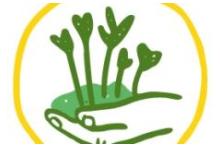GrowGood is a nonprofit employment social enterprise dedicated to transforming communities and changing lives through collaborative urban agriculture projects. By addressing critical challenges such as food insecurity, workforce development, and the revitalization of vacant urban land, GrowGood creates lasting impact at the intersection of food equity, environmental sustainability, food is medicine, and job readiness.
GrowGood operates two urban regenerative farms projects:
Devamını Oku
GrowGood is a nonprofit employment social enterprise dedicated to transforming communities and changing lives through collaborative urban agriculture projects. By addressing critical challenges such as food insecurity, workforce development, and the revitalization of vacant urban land, GrowGood creates lasting impact at the intersection of food equity, environmental sustainability, food is medicine, and job readiness.
GrowGood operates two urban regenerative farms projects:
(1) The Bell Farm (est. 2011): A 1.5-acre regenerative farm located adjacent to The Salvation Army’s Bell Shelter, one of the largest homeless shelters in the US.
(2) The Veterans Garden Project (2025): A 15-acre parcel of land at the West LA VA Complex in partnership with The VA Whole Health Program, UCLA Health, and GrowGood.
GrowGood has developed holistic programming purposefully designed to address the myriad of challenges that vulnerable populations face by assisting them along the path to stability and self-sufficiency. Through unique collaborations with social service organizations, we create supplemental programs that aren’t available through the core provider, yet are needed for long lasting and effective solutions.
PROGRAMS
(1) Food for Life Wellness Program (Bell Farm only)
Our wellness programming includes nature-based mindfulness classes for trauma-impacted individuals, as well as Food as Medicine and Nutrition initiatives. We developed a nature-based mindfulness program & curriculum in partnership with the Bell Shelter’s Wellness Center (Drug Medi-Cal & Veterans Residential Recovery Center). Designed to complement the SAMHSA-guided recovery program, participants are required to attend twice weekly 1-hour classes at the farm. The program teaches participants mindfulness based tools, providing them with education around the importance and value of mindfulness exercises, and a space to practice the tools at each class. We also teach separate, specialized Veterans mindfulness classes twice a week.
(2) Urban Agriculture & Food Systems Training Program (Employment)
Developed for individuals with barriers to employment, our On-the-Job Training Program provides up to 300 hours of paid employment through which trainees are able to earn income, gain recent work experience, and learn new & transferable skills. In 2023 we redesigned our employment program to be more focused on skill acquisition, both technical and soft skills, and developed a model of Individualized Employment Plans focused on individual goals, providing flexible & responsive employment. Each trainee receives 12 hours of specialized professional development and life skills training led by experts in their fields, as well as a 20-hour job shadowing placement at an external partner site aligned with the trainees career objectives.
(3) Food Distribution (Donations)
On a weekly basis we harvest produce from our 1.5-acre farm. Through a tiered distribution system to ensure there is no food loss or food waste, we donate freshly harvested produce to our Farm Site partners (the Bell Shelter Kitchen and the West LA VA Food Hub) ensuring they have a supply of farm-fresh produce & herbs on a weekly basis. We also set up a produce farm table at the weekly Bell Shelter Food Pantry to supplement shelf stable items with freshly harvested produce for unhoused and food insecure individuals from the surrounding community who are not residing at the Shelter.
(4) Social Enterprise (Sales)
Through our social enterprise, which provides additional skills experience for our trainees, we sell wholesale produce to local markets and restaurants committed to food access (accepting SNAP/EBT, community-based, small-businesses). In 2025, we launched our direct to consumer sales by establishing a mobile farm stand at partner sites to offer low-income communities in food deserts with access to produce through CalFresh benefits. We are also partnering with CalFresh Healthy Living Program to provide farm-stands alongside CalFresh-led nutrition classes.
(5) Regenerative Agriculture
Regenerative farming is a proven way to mitigate the impacts of climate change through carbon sequestration. We work with the USDA NRCS to ensure we are continuously implementing conservation practices that will ensure the health of the entire ecosystem, resulting in higher quality air, soil, and food. We operate onsite composting at our sites, carefully managing and monitoring the inputs.
(6) Community Engagement
We host a wide range of groups to the farm for organized volunteer events, including three monthly community volunteer events at the Bell Farm and a bi-monthly volunteer event at the Veterans Garden open to the public. We also host corporate and school groups for volunteer days of service. And, we work with community partners to provide free workshops for non-traditional learners, including the aging population and non-traditional high schools.
Tam Metni Gizle
